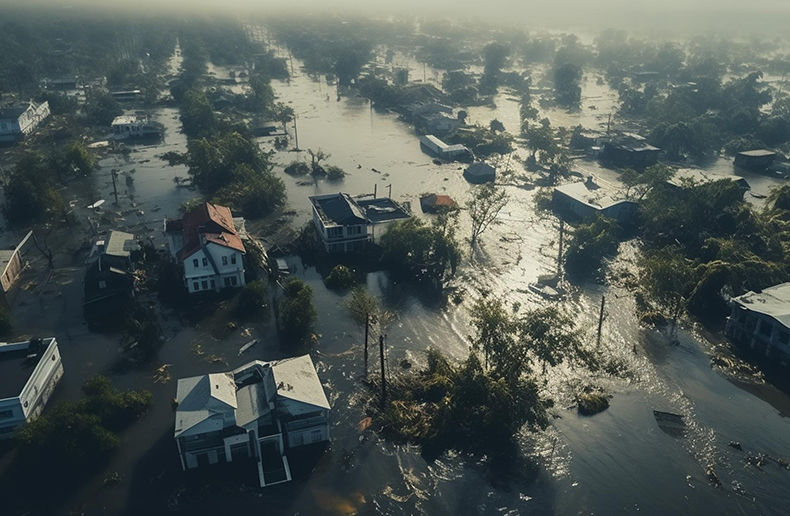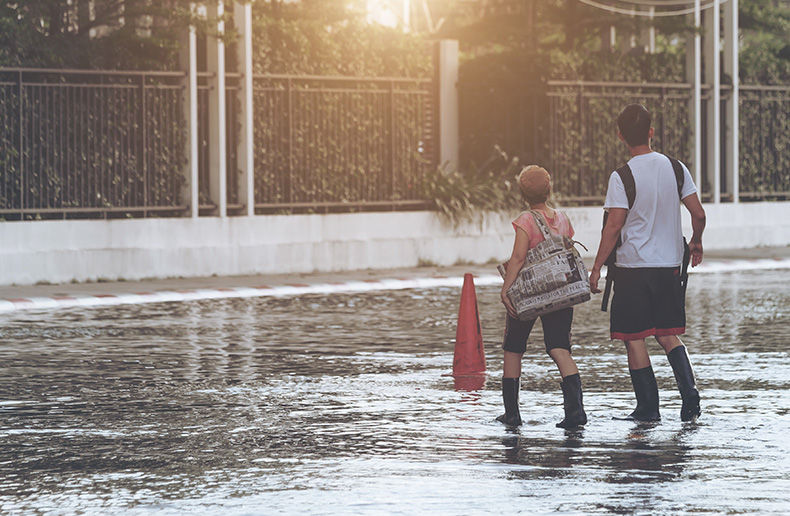Climate Proof Canada believes that Canada can better protect people from the increasing effects of climate change, and help communities prepare for and adapt to future challenges, including the escalating risk of climate-related disasters.
The coalition was formed to encourage the federal government to take action now to create a culture of preparedness and build a more disaster-resilient country.
Today, the coalition is made up of 20 companies and organizations. Insurance members include Aon, Insurance Brokers Association of Canada (IBAC), Aviva, Insurance Bureau of Canada (IBC), Desjardins, Intact Financial Corporation, Property and Casualty Insurance Compensation Corporation (PACICC), TD Insurance, and Wawanesa, together with industry-related research organizations such as the Intact Centre for Climate Adaptation and the Institute for Catastrophic Loss Reduction (ICLR).
Who is behind this initiative?
The Coalition's website is copyrighted by the Insurance Bureau of Canada. The privacy statement also confirms that the site is owned by IBC. Requests for information are directed to IBC as well.
The website features studies commissioned over the years by the property and casualty insurance lobby in Canada.
Four demands
This new pro-climate lobby is calling on the federal government to:
- Prioritize the completion of the National Climate Adaptation Strategy, ensuring it protects people and infrastructure from the threat of increased flooding, wildfire, heat, drought and extreme weather events, with specific recognition of and attention to the disproportionate impacts of these events on Indigenous peoples and vulnerable communities. This strategy should incorporate measurable targets, leverage private-sector capacity and promote nature-based solutions;
- Appoint an advisor on national disaster resilience to inform and advise Cabinet and the Prime Minister's Office on the rapidly changing landscape of climate-based and other risks;
- Extend and enhance its recent work to reduce the risk and impact of flooding across Canada; and
- Ensure that sustainable finance initiatives help public and private sector organizations assess, disclose and manage escalating physical risks.
Other members
Other Coalition members include a municipal government, an indigenous organization, environmental non-governmental organizations (ENGOs) and research organizations:
- Federation of Canadian Municipalities
- Métis National Council
- Forest Products Association of Canada
- Canadian Chamber of Commerce
- Business Council of Canada
- Canadian Association of Physicians for the Environment
- International Institute for Sustainable Development
- Smart Prosperity Institute
- The Pembina Institute
Some members explained their reasons for joining this initiative led by the Insurance Bureau of Canada.
“At the Canadian Association of Physicians for the Environment, we know that the climate crisis is a health crisis. Our patients are already suffering health problems caused by wildfires, polluted air and extreme heat. In order to protect our health, it is as essential that our communities have all the needed tools and resources to properly adapt to the growing environmental disruptions as it is to rapidly decrease our greenhouse gas emissions. A national adaptation strategy is key to reducing social inequities and ensuring a healthy future for all," explains Dr. Claudel Pétrin-Desrosiers, a member of the association's board.
The Canadian Chamber of Commerce representative, Aaron Henry, senior director of natural resources and sustainable growth, emphasizes economic arguments. “Extreme weather events from 2010–2019, caused more than $14.5 billion in losses to the Canadian economy. This is more than 60 per cent of the extreme weather event losses of the last four decades combined.” He adds that climate change–induced extreme weather events are not a hypothetical risk. In fact, these risks “are here and have already uprooted communities, destroyed critical infrastructures and created mental health challenges. We are happy to join this coalition and stand behind its mission to create a national adaptation plan to ensure all of us, especially the young and vulnerable, have the physical and social infrastructures to face the future with confidence.”
Derek Nighbor, president and CEO of the Forest Products Association of Canada, says that every year, pests and fires damage nearly 25 times the amount of the forest area that Canada's foresters are sustainably harvesting. He adds that Natural Resources Canada modelling shows that the situation will worsen over the next 75 years if no decisive action is taken.
“This impacts community safety due to wildland fire evacuations, the carbon story of our forests, forest resiliency and productivity, and important economic opportunities in forestry for Indigenous and non-Indigenous communities. A national adaptation plan that focuses on forestry solutions will be critical to achieving our sector's environmental, social and economic potential,” he continues.
Craig Stewart, vice president federal affairs at IBC, says that between 2009 and 2020, insured losses related to natural catastrophic events averaged $2 billion per year, compared with an average of $422 million per year from 1983 to 2008. Last year alone, these losses were $2.4 billion. This means that losses caused by severe weather events, which are becoming more frequent, have more than quadrupled, he points out.






















